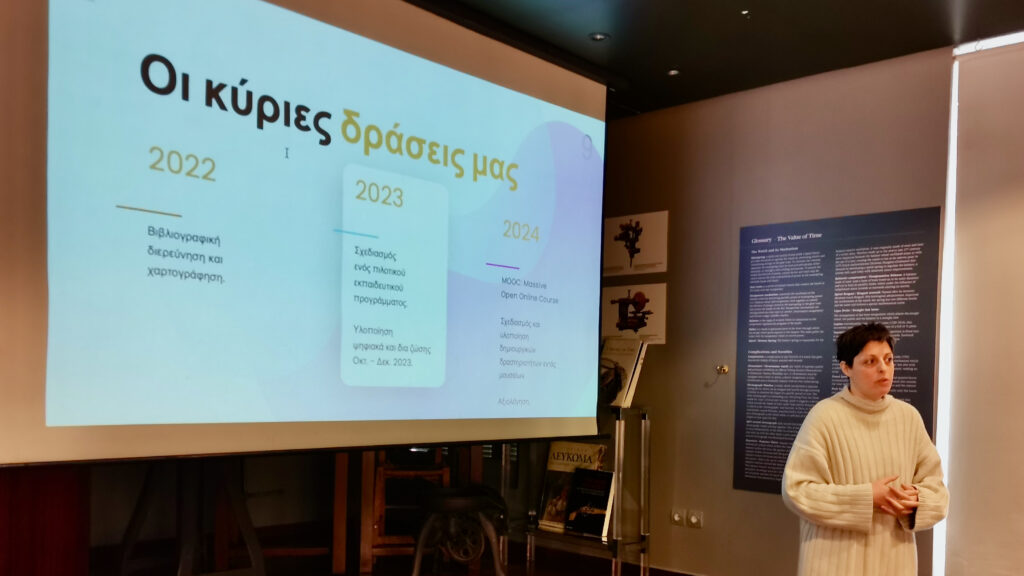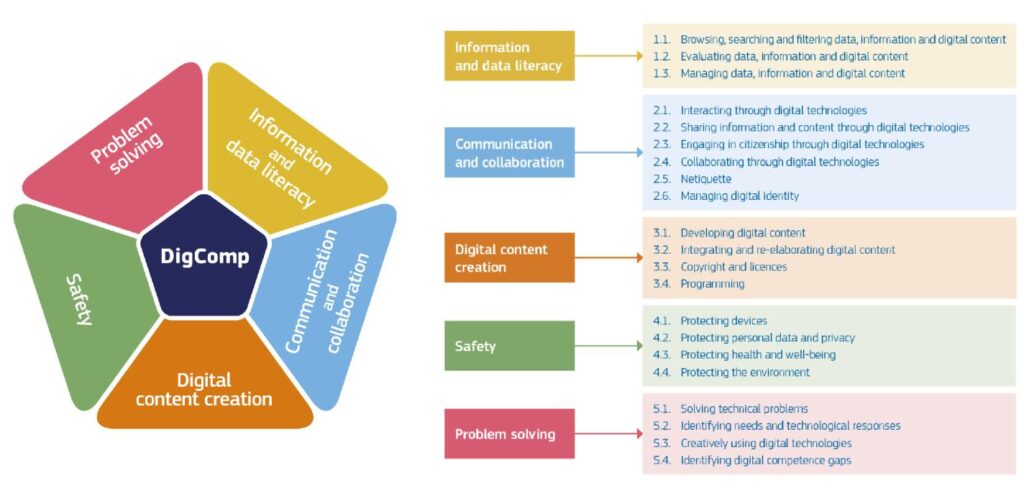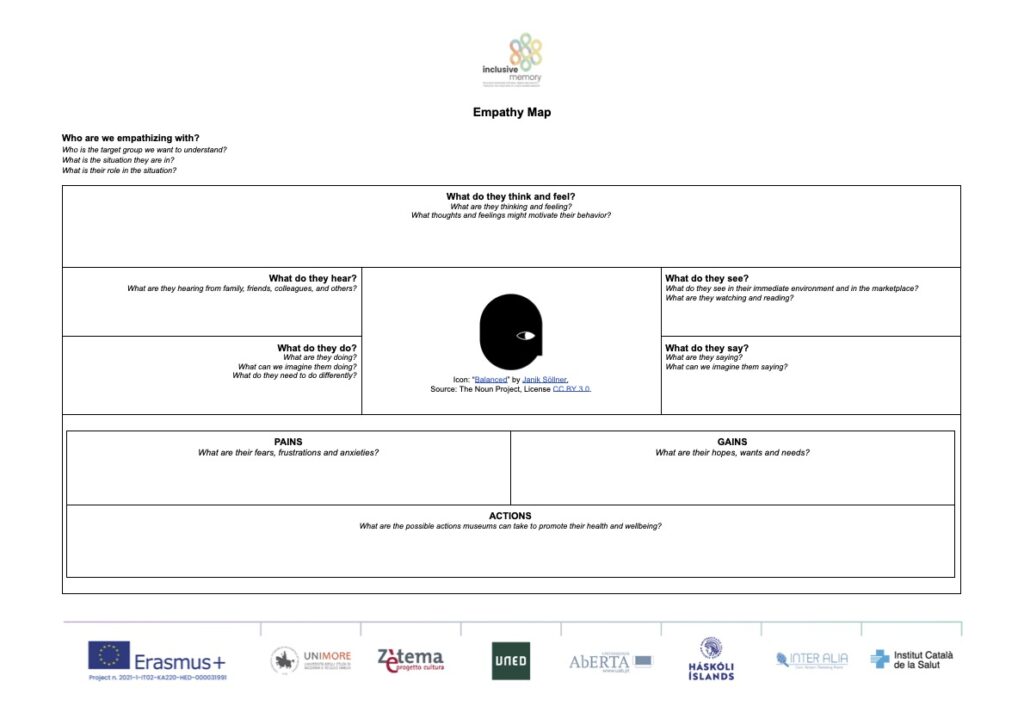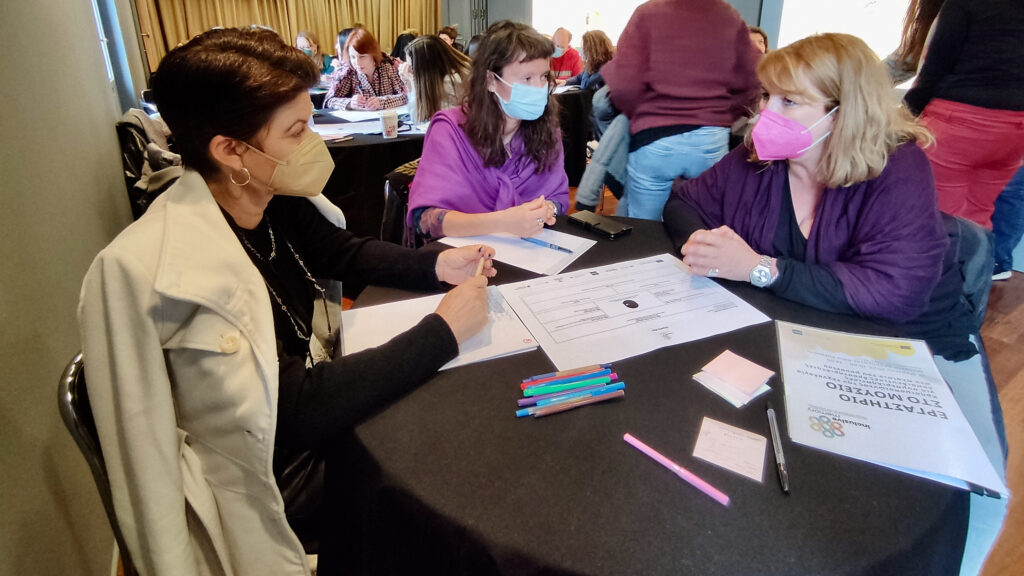
On Saturday 18 March 2023, Inter Alia, in cooperation with UNED – Universidad Nacional de Educación a Distancia, organized the workshop “Using Technology for Inclusive Educational Activities in the Museum Context”, which took place at the Ilias Lalaounis Jewelry Museum (Athens, Greece).
The workshop was attended by 30 museum professionals, cultural management students, social workers and educators in formal and non-formal education (including primary and secondary special education). Its purpose was to familiarise the participants with new and emergent technologies that can be used in museum settings to promote health, wellbeing and inclusion, as well as to help them identify the competencies needed by professionals when including these technologies in the context of museum activities and experiences.
During the first part of the workshop, Revekka Kefalea introduced the participants to the background and rationale of the Inclusive Memory project, its main research questions, aims and approaches (i.e. social model of disability; threefold definition of wellbeing; Asset-Based Community Development), along with its existing, ongoing and upcoming results and activities. Then, based on the outcomes of the extensive literature review and mapping on the use of technology for inclusive educational activities in museum settings (see the related PR2 Handbook of the project), Revekka presented a few examples of technological applications that can be adopted by museums to cultivate the visitors’ cross-sectorial skills, and enhance their museum experiences.

Image by © Amerissa Giannouli.
Also, based on the threefold definition of wellbeing (i.e. wellbeing in terms of (a) psycho-physical health; (b) competences for active citizenship; and (c) emotional engagement), Revekka discussed with the participants the ways these technological applications can be used to promote health and wellbeing — especially for disadvantaged and vulnerable groups (see the related PR1.A3 report of the project). It is worth noting that, while discussing current and potential uses of these technologies, the participants were able to grasp and articulate the necessary skills for professionals to promote health and wellbeing in museum settings with the use of these technologies.

Image source: DigComp. License: CC BY 4.0.
During the second part of the workshop, Amerissa Giannouli encouraged the participants to work together in groups, and design a museum activity or experience (e.g. guided tour, workshop, installation etc.) for one disadvantaged / vulnerable group. In an effort to design this activity or experience, Amerissa asked the participants to try first to empathize with their selected group with the use of the following empathy map template:

This tool helped the participants realize their difficulty in putting themselves in the place of their selected groups, and the importance of co-designing museum activities or experiences with their active involvement. Also, participants agreed that it would be ideal to have people from their selected groups as colleagues in museum settings – something that could increase the level of their participation, and their sense of agency. Moreover, participants mentioned that the whole process helped them realize that any selected group is not homogeneous, and therefore, a more intersectional approach should be taken into consideration when designing such museum activities or experiences.

Image by © Amerissa Giannouli.
Overall, the workshop sparked a lot of questions around the use of new and emergent technologies, as well as fruitful discussions regarding the competences that professionals need to cultivate and have to promote health and wellbeing in museum settings. For some of the participants the information shared during the workshop was new and hence, quite puzzling. But they all found it extremely useful and relevant to their work, and expressed their interest and willingness to collaborate and participate actively in the forthcoming activities of the project.
Note: Special thanks to Byron Vafiadis (Curator, Director of Educational Programmes, Ilias Lalaounis Jewelry Museum) and Eleni Mastoras (Director of Administration, Ilias Lalaounis Jewelry Museum) for their warm hospitality and support! It was a pleasure for us at Inter Alia to offer this workshop at the Ilias Lalaounis Jewelry Museum, and enjoy the guided tour at the permanent collection, along with the workshop participants.




